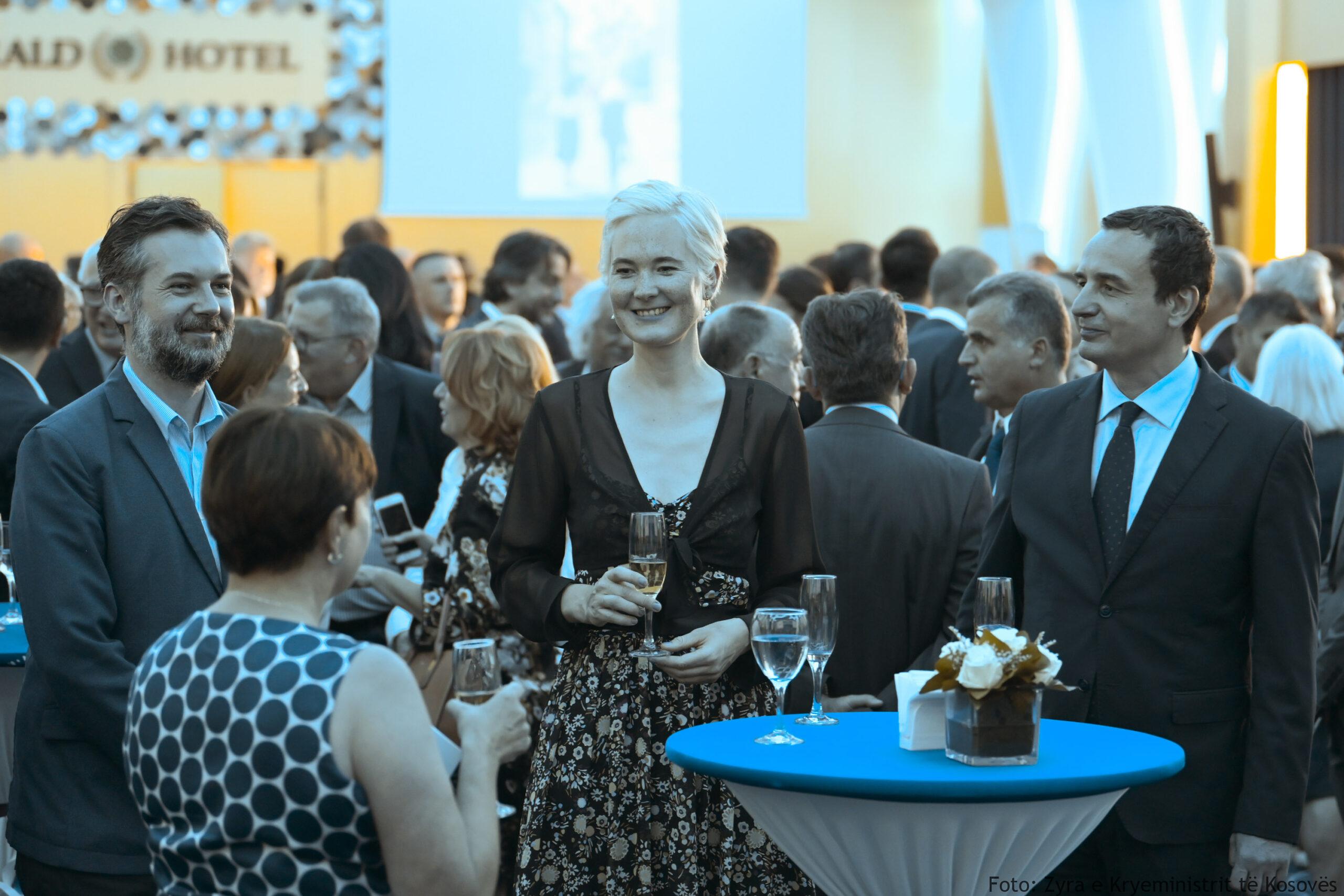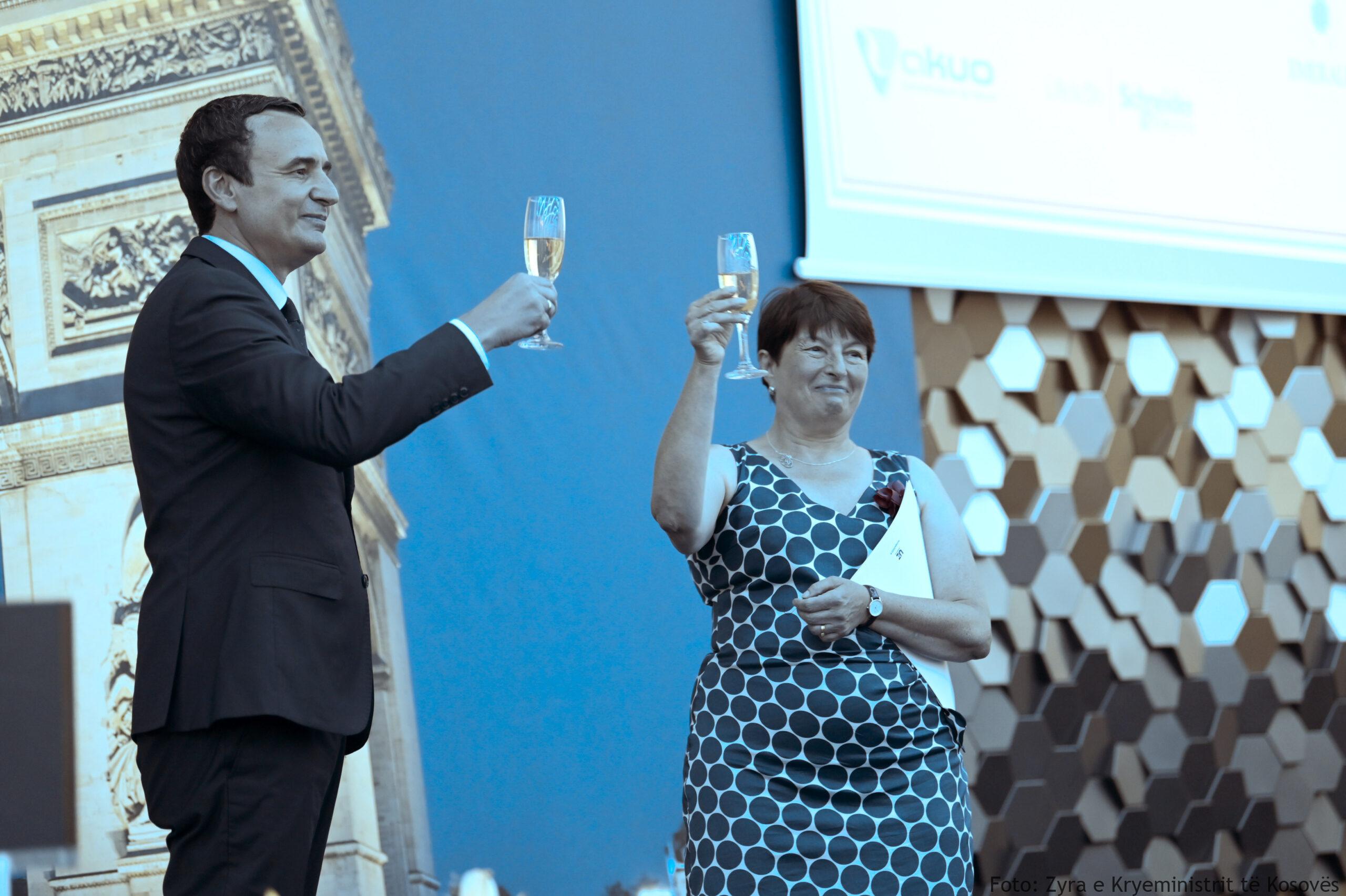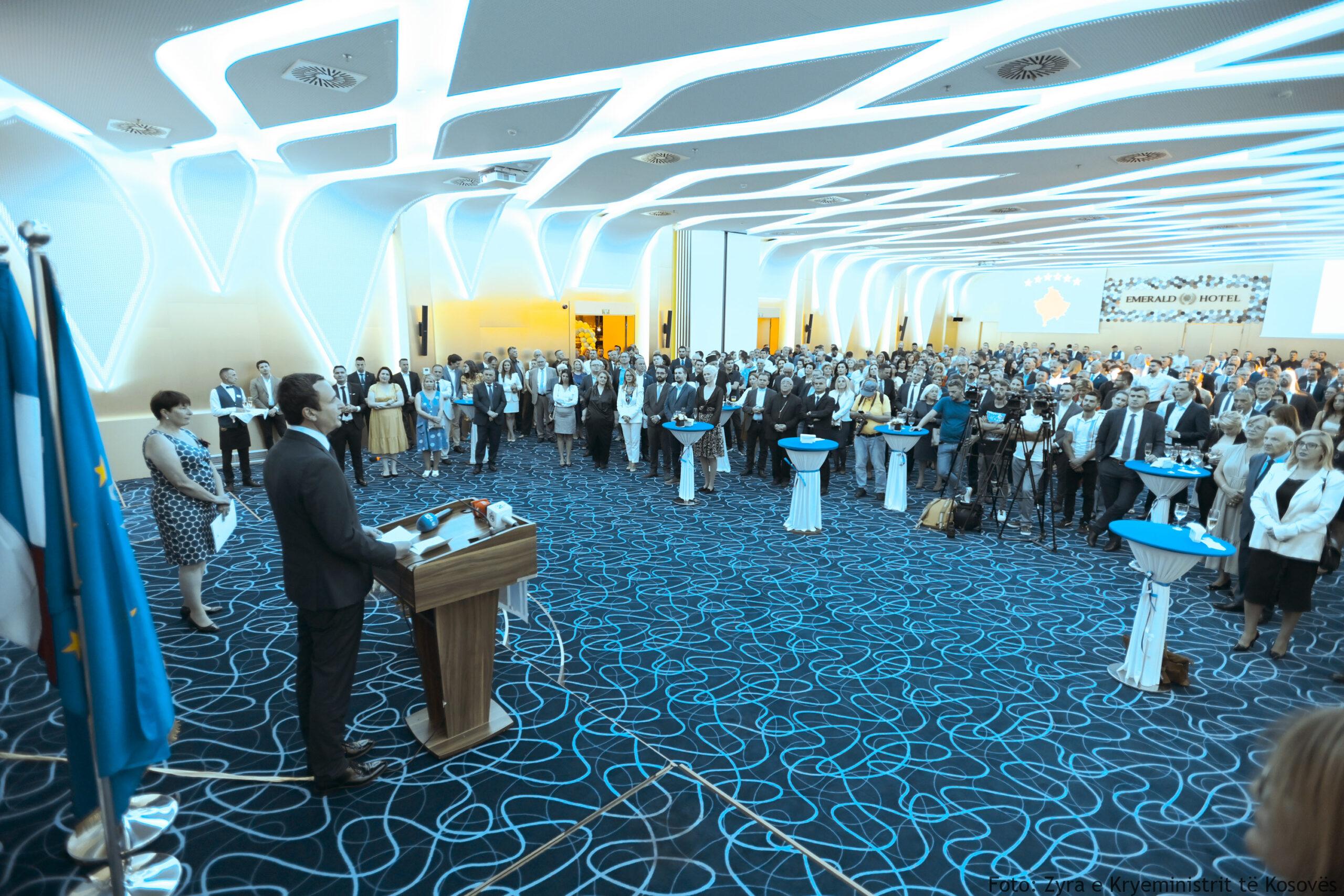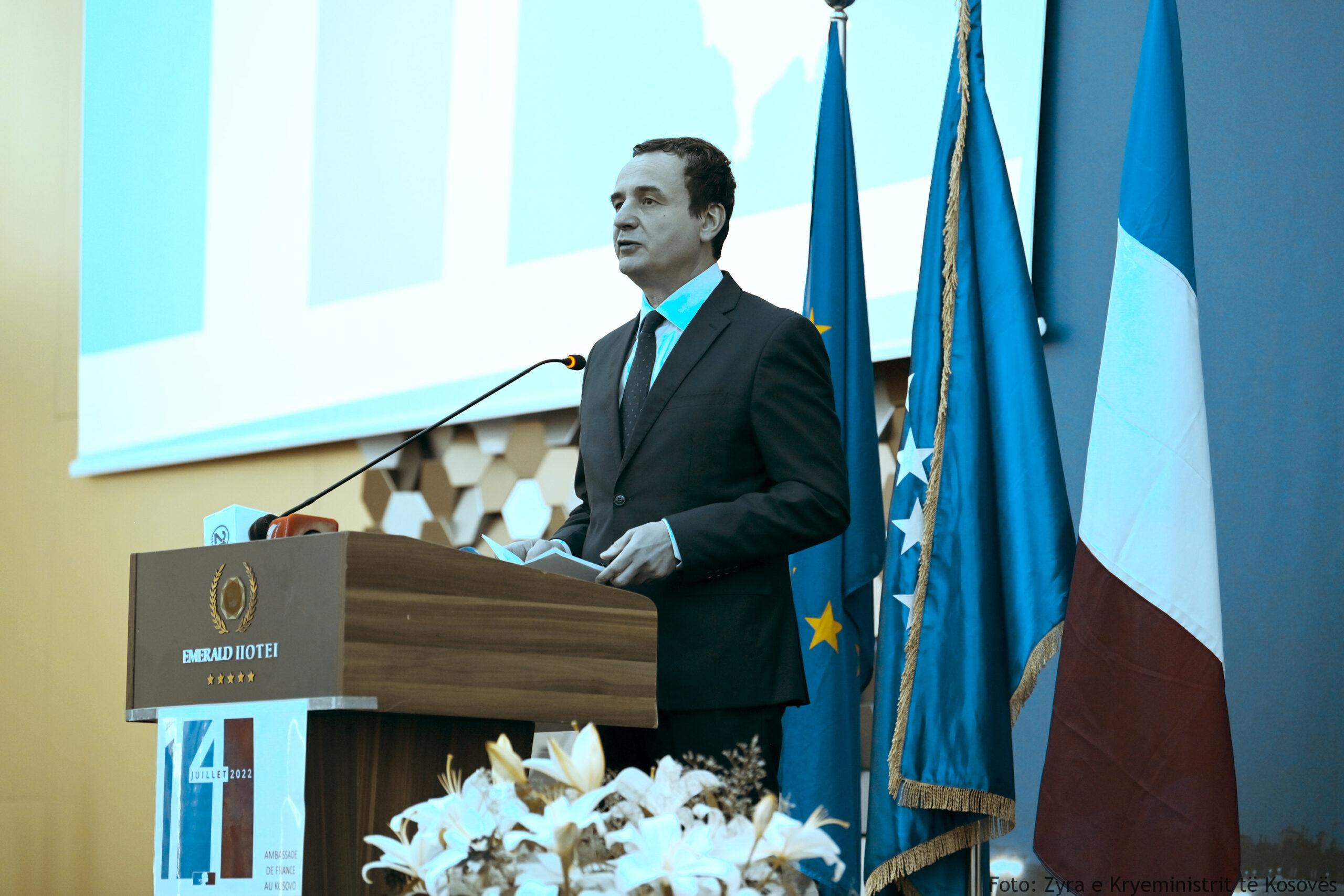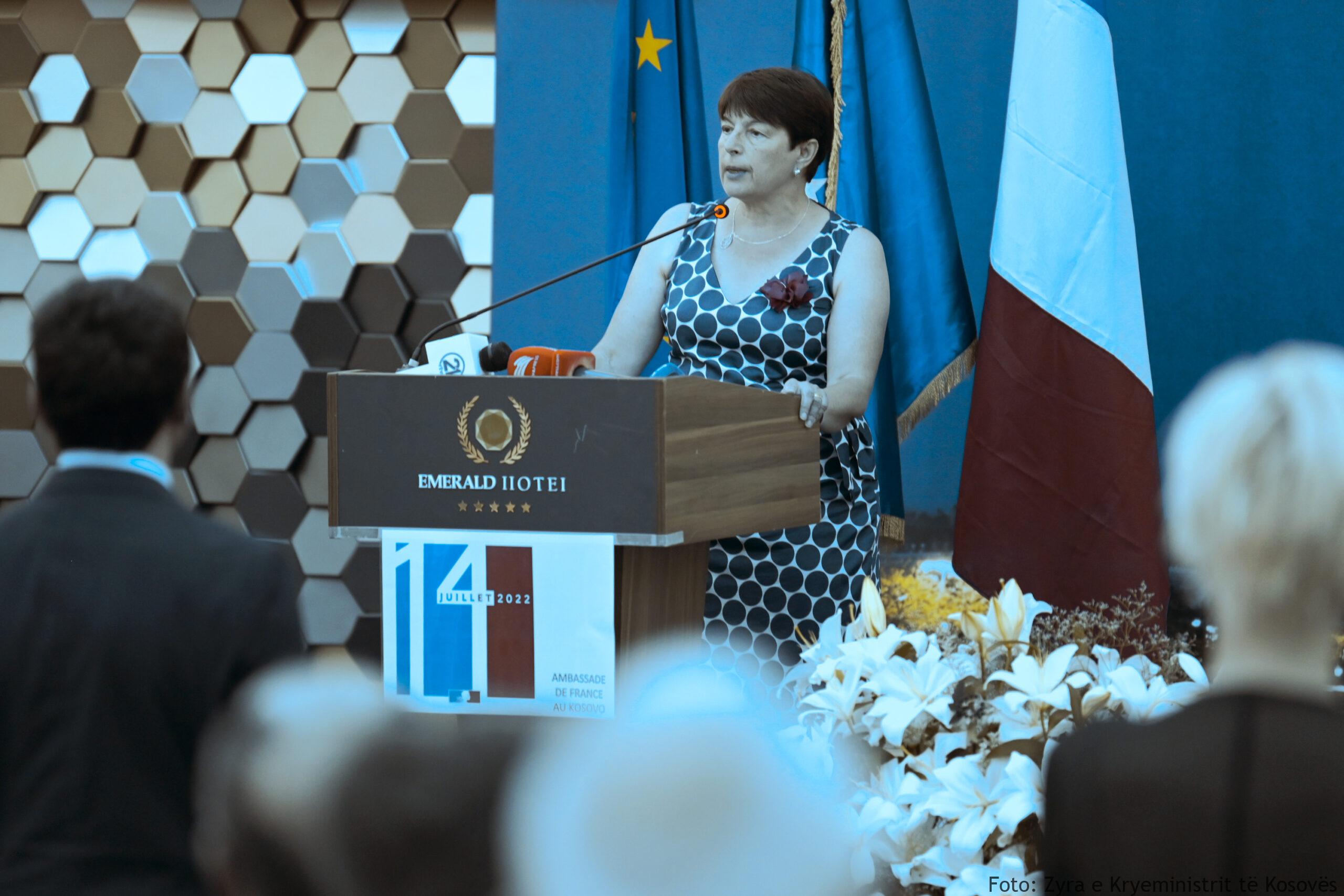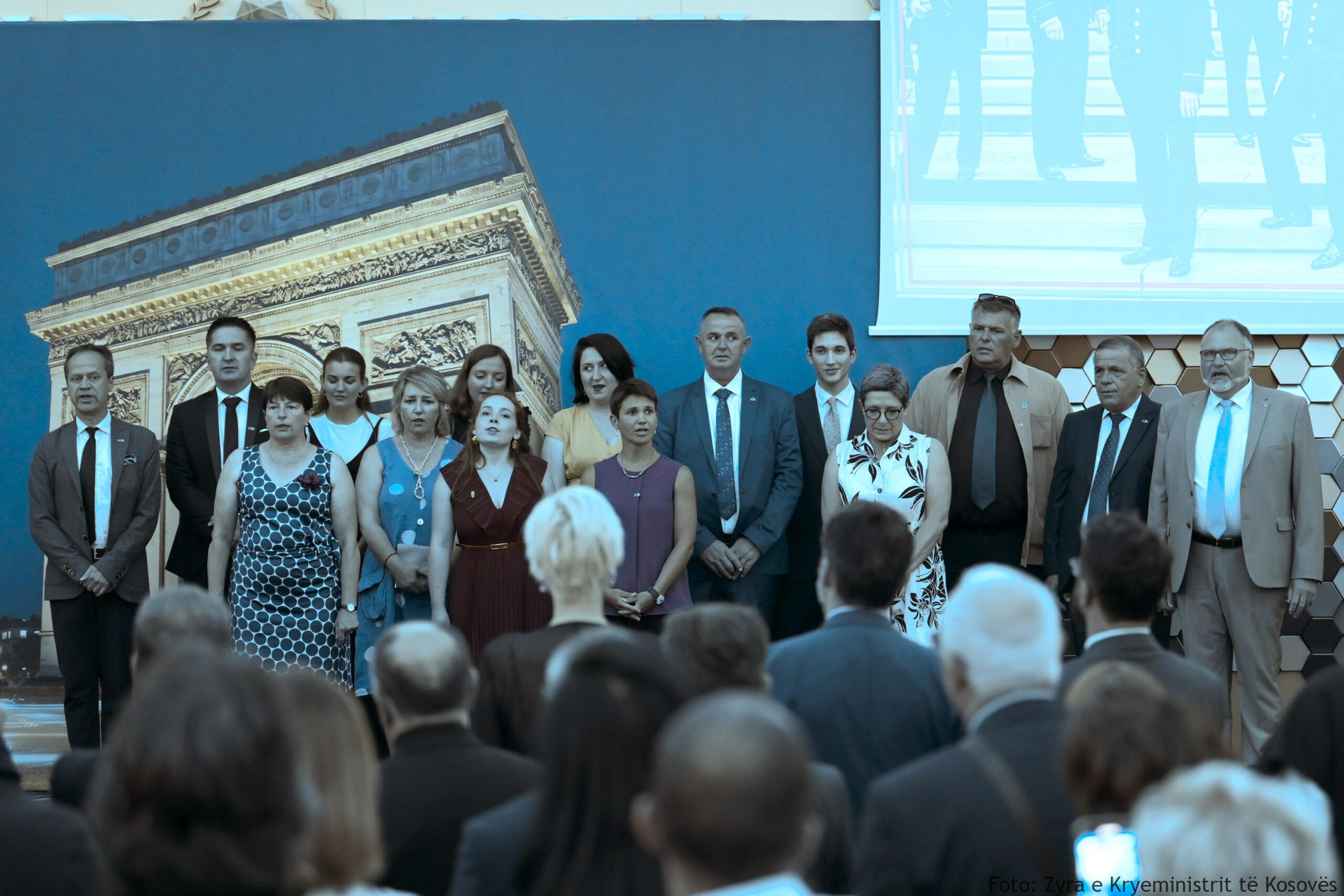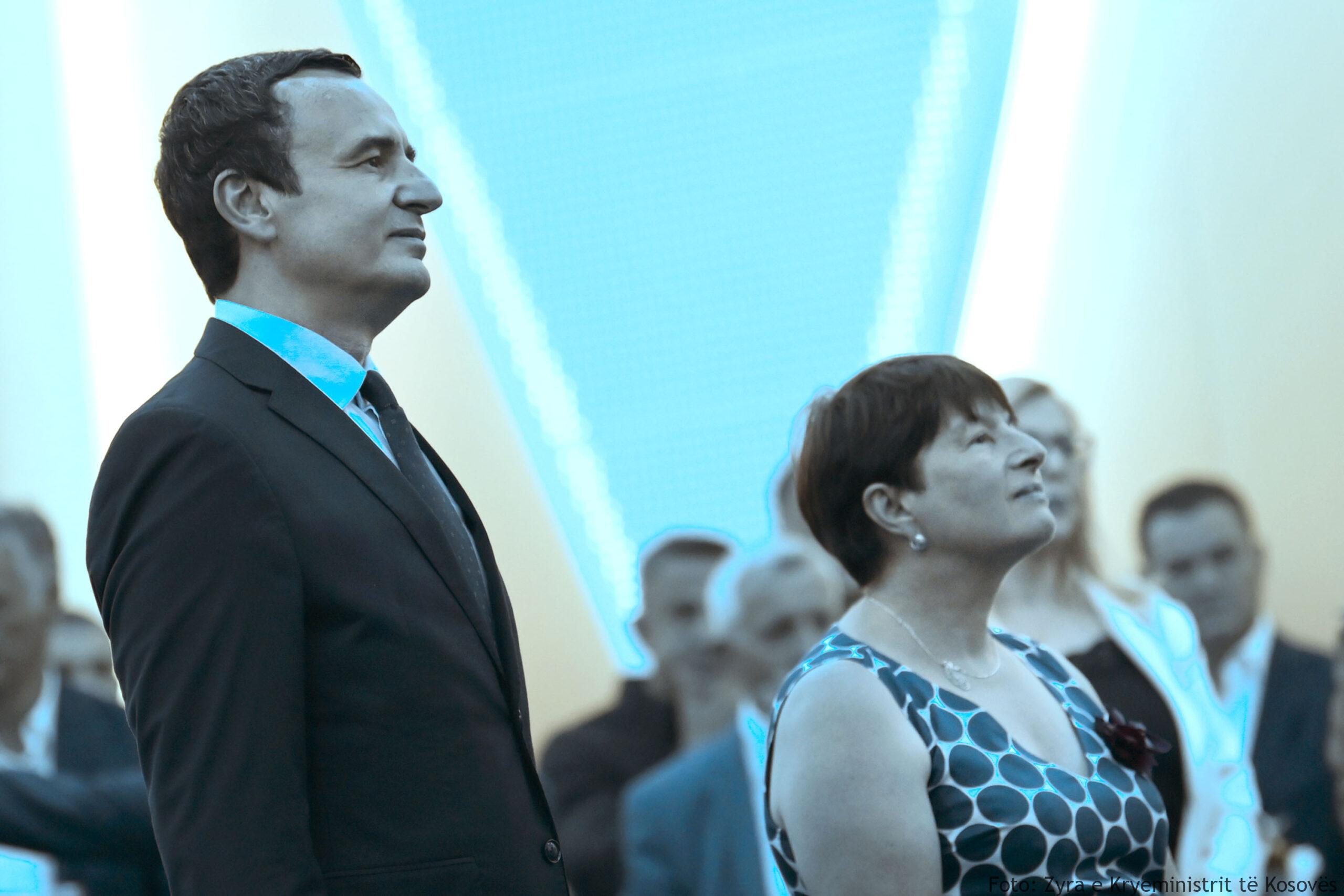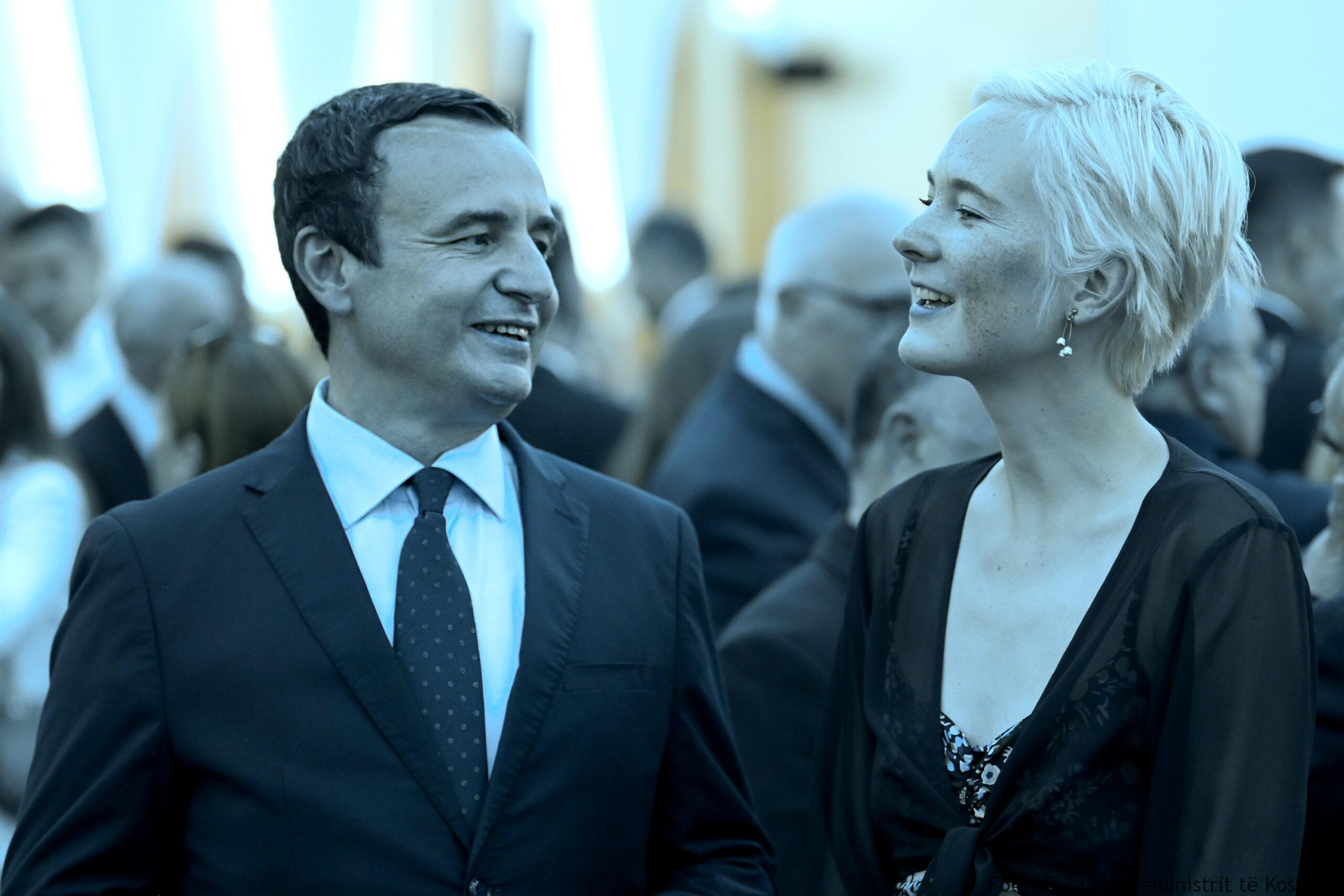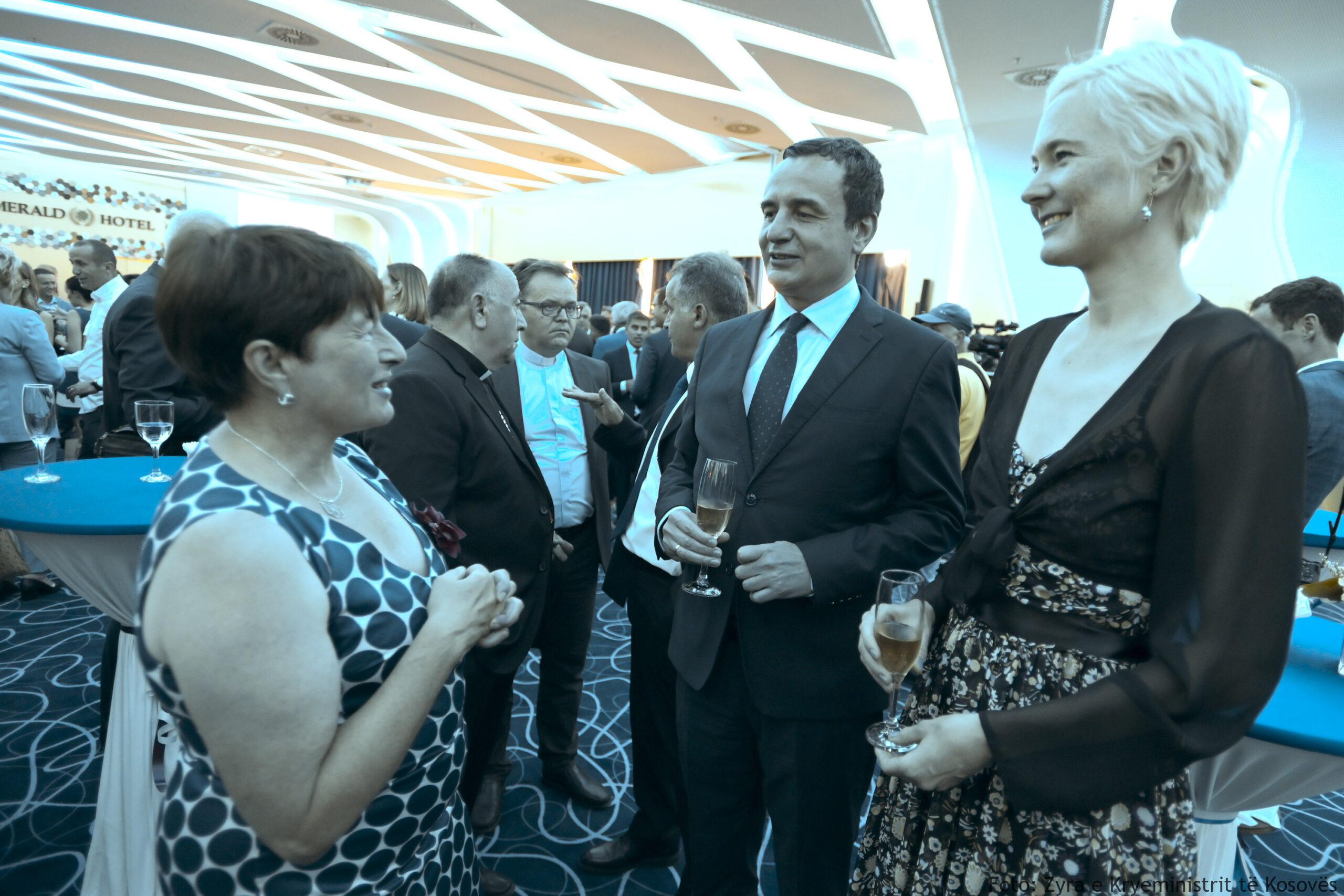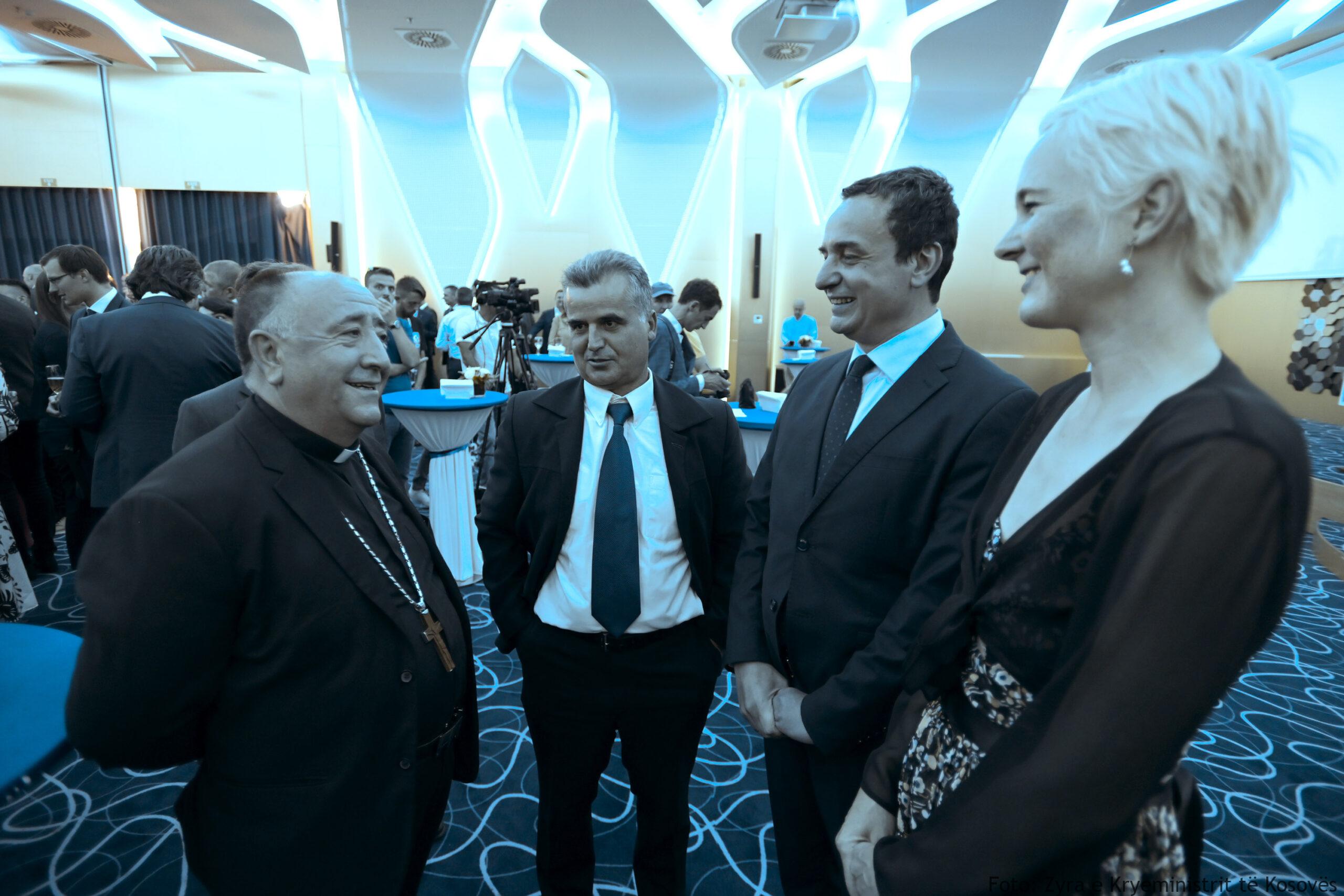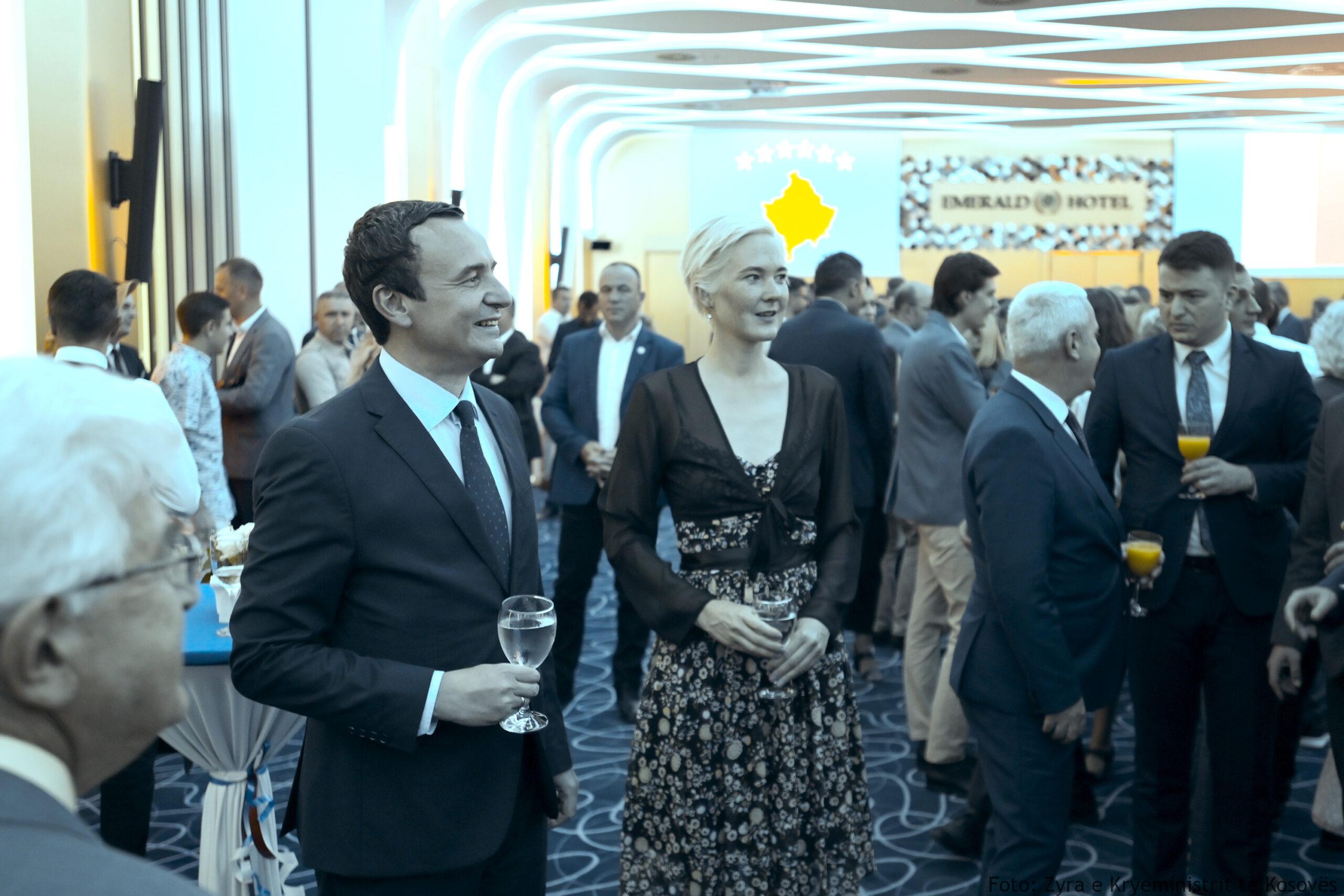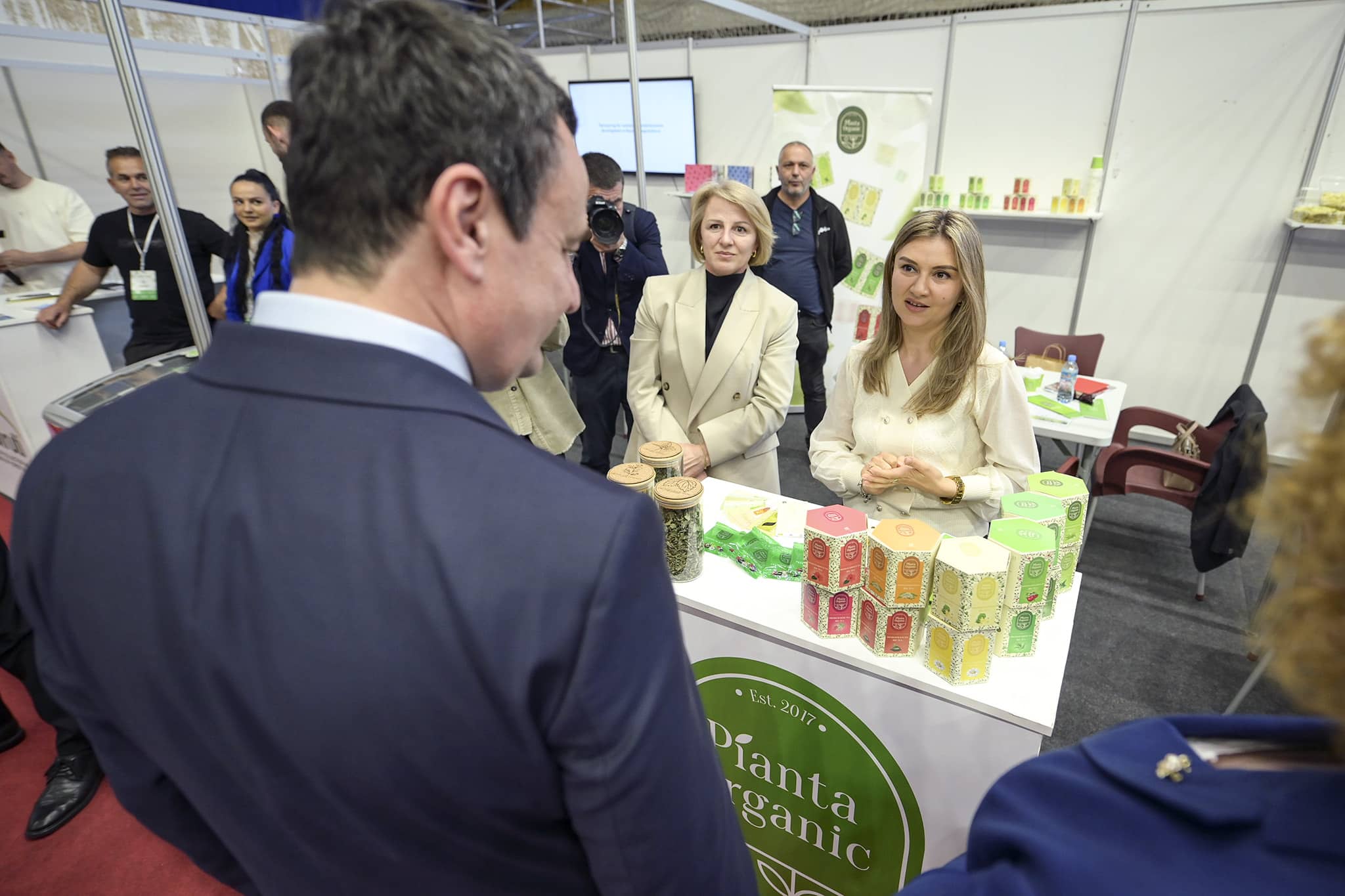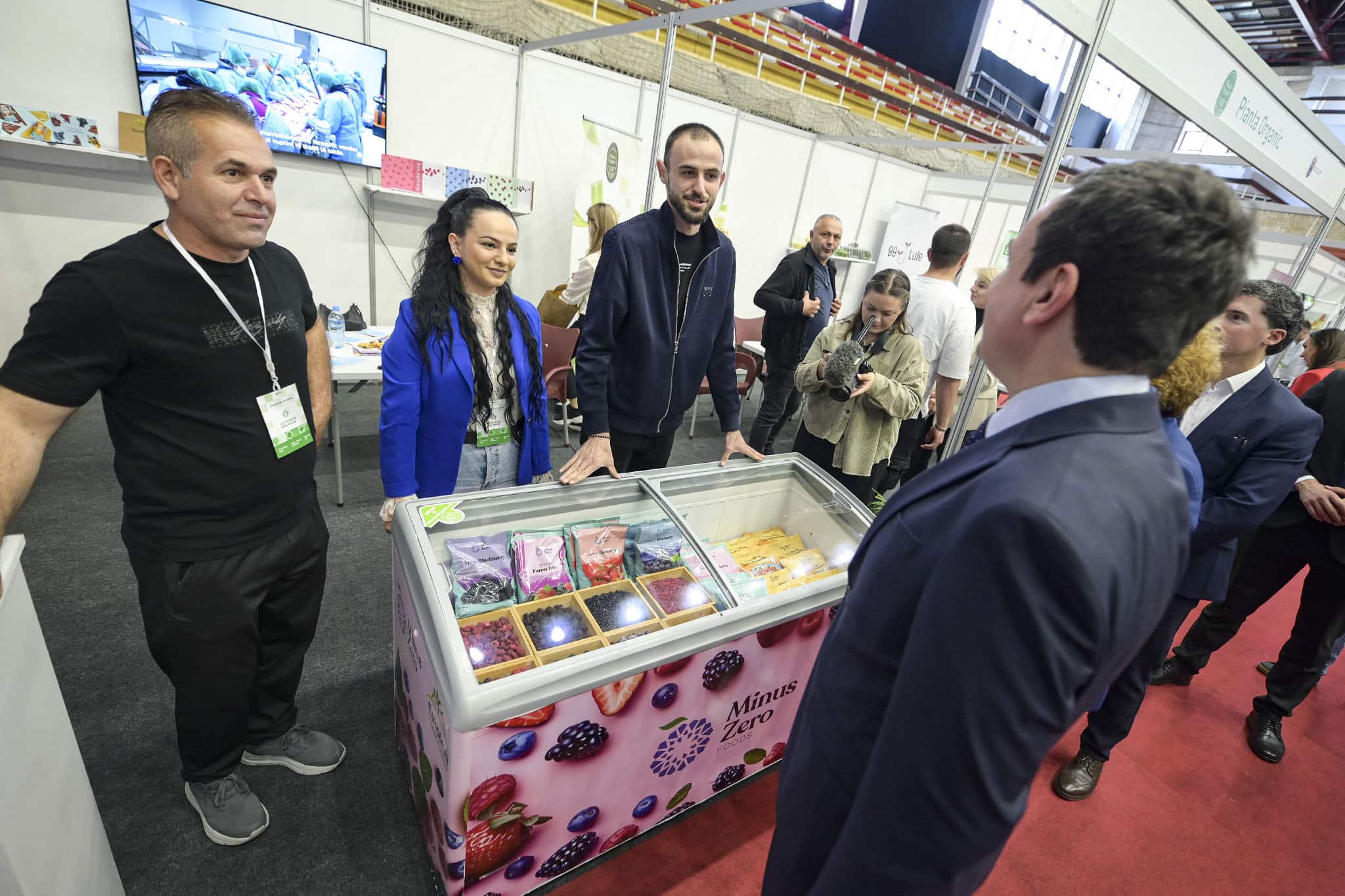Prishtina, 14 July 2022
The Prime Minister of the Republic of Kosovo, Albin Kurti, participated in the reception organized by the French Embassy on the occasion of July 14 – the France’s National Day.
Prime Minister Kurti, in his speech, expressed his pleasure to be part of the celebration of two major events in modern French history, the fall of the Bastille and the unification of the French people.
Most of what we consider in political vocabulary nowadays —the discourse of human and civil rights, republicanism, popular sovereignty, the nation-state, the division of the political spectrum into right and left—is the direct legacy of the French Revolution, said the prime minister.
He emphasized that many Albanian artists and researchers have been inspired by the French culture such as: writer and intellectual Faik Konica, writer Ismail Kadare, guitarist Ehat Musa and professor of philosophy Muhamedin Kullashi.
Prime Minister Kurti expressed his happiness that the Republic of Kosovo and the Republic of France enjoy excellent mutual relations at the political level.
France was one of the first countries to recognize Kosovo’s state and independence, he said and added that since then, we have continued to cultivate our precious friendship, even becoming a branch of both the International Organization and the Parliamentary Assembly of Francophonie.
My government highly values our mutual relations and is determined to promote them even further in the future, said Prime Minister Kurti.
The full speech of Prime Minister Albin Kurti:
Your Excellency Madam Marie-Christine Butel, French Ambassador to the Republic of Kosovo,
Dear guests,
Members of the Assembly and the Government,
Religious leaders,
Ladies and gentlemen,
It is my pleasure to be with you today in marking la Fête Nationale Française, the celebration of two major events in modern French history – namely the storming of the Bastille (July 14, 1789) and the unification of the French people (July 14, 1790, Fête de la Fédération).
Merci de me recevoir! (Thanks for inviting me – in case my incorrect pronunciation confuses you).
As one of the twin revolutions (the other American) that gave us political modernity, the French Revolution stands out for the radical break it brings to the self-understanding of the modern world. One can be in favor or against, but cannot ignore it. Indeed, although they had rebelled against the British monarchy 13 years earlier, it was only after the French Revolution that American revolutionaries came to appreciate the radicality of their deed. In the enthusiastic sympathy that the French Revolution evoked in spectators around the world, Immanuel Kant saw the sign of “a moral predisposition in the human race”—one that, he believed, foreshadowed the progress of our species towards the better.
233 years ago, the thought and action entered into a contest never seen before. The fact and justice opposed so as to never rule over each other.
The two thinking times of the revolution, which had already appeared in the great minds, Montesquieu and Rousseau, would give us in impressive detail the capabilities of democracy and the features of the Republic.
Bastille Day is at the same time the burst of the declaration for freedom at all costs, the fall of the Bastille prison, but also a popular declaration, an anonymous mass rising for freedom. The Republic will therefore be a permanent relationship between freedom and the people. Democracy must and will be extended to the extent of a Republic. Here is a sufficient reason for a second July 14, that of the Federation a year later.
Therefore, Madam Ambassador, I congratulate you on the national day of the fall of the Bastille and that of the Federation of the French nation.
Ladies and gentleman,
Most of what we consider in political vocabulary nowadays —the discourse of human and civil rights, republicanism, popular sovereignty, the nation-state, the division of the political spectrum into right and left—is the direct legacy of the French Revolution. “The right to have rights” of those traditionally excluded from political participation received its first doctrinal articulation in the context of the large political debates of the French revolutionary era. As abbé Sieyès (Emmanuel Joseph Sieyès) put it in his famous pamphlet: “What is the Third Estate? Everything. What has been so far in the political order? Nothing. What do you want it to be? Something”.
Something of the French genius penetrated the Albanian culture for the first time through one of our most important modern writers and intellectuals, Faik Konica. As an unapologetic Francophile, he was heavily influenced by the French language and culture. According to Konica’s researcher, Luan Starova, “the aesthetic formation in French language, acquisition, assimilation of the inherent characteristics of the Gallic spirit, fastidious Voltaire feeling for irony and sarcasm, criticism as the only criterion to achieve to the truth of the Cartesian spirit” were some of the most significant factors that shaped our writer’s sensibilities.
Dear participants,
We are aware that the most powerful and high level of political and social expression in participation was the Renaissance, spanning almost 80 years and more. And most of our renaissance figures spoke French very well. They had learned the French of Voltaire and Diderot.
The highest part of French moral and political, scientific and literary knowledge made our political ancestors more knowledgeable, facilitating the times to come. Without them, our destinies would have fallen into blindness. Without lights, even with eyes, we are blind. Let us wish and hope today that the connection with this enlightened participation of people in democracy and the Republic has not been lost along the way. In this sense, we congratulate the national holiday of the French Republic, as a date that reminds us all of the duties we have to fulfill the freedom and equality.
Since Konica’s time, many other Albanian artists and researchers have continued to be inspired by the French culture. From our best-known living writer Ismail Kadare to our world-renowned classical guitarist Ehat Musa and recently repatriated philosophy professor Muhamedin Kullashi.
I am also happy to say that at the political level our two Republics enjoy excellent mutual relations. France was one of the first countries to recognize Kosovo’s state and independence. Since then, we have continued to cultivate our precious friendship, even becoming a branch of both the International Organization and the Parliamentary Assembly of Francophonie. My government highly values our mutual relations and is determined to promote them even further in the future.
Bonne Fête Nationale! Merci beaucoup!
Happy National Holiday! Thank you very much!

